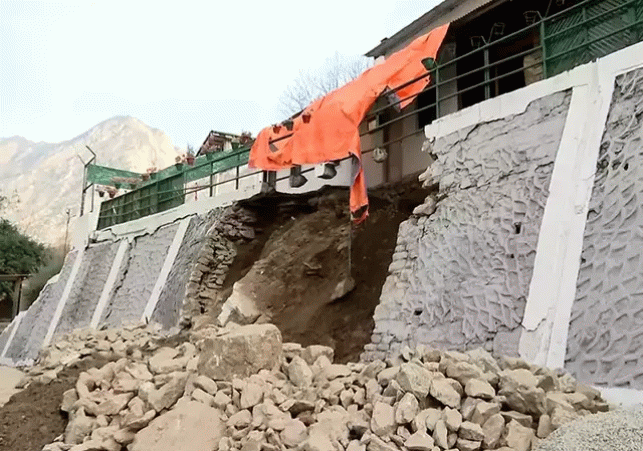
Uttarakhand's Joshimath prone to earthquakes
Uttarakhand's Joshimath prone to earthquakes: Report highlights soil capacity
A report compiled by eight government-run institutes sheds light on the soil carrying capacity of the Uttarakhand town of Joshimath, which has been grappling with land subsidence, often referred to as the 'sinking town.' The report emphasizes the region's vulnerability to high-magnitude earthquakes and classifies Joshimath into four zones based on the magnitude of danger posed by land subsidence.
High-risk zones identified
Joshimath has been categorized into 'red, black, yellow, and green' zones, with the 'red' zone being designated as high-risk. Construction activities within the high-risk zone are slated for demolition, as stated by Ranjit Sinha, Secretary of the Uttarakhand Disaster Management Department.
ALSO READ: Landslides force relocation of families in Uttarakhand's Pagnau village
NTPC exonerated
The report clears the National Thermal Power Corporation (NTPC) of any direct involvement in the situation in Joshimath. Earlier, residents had expressed concerns about explosions in the tunnels of the NTPC project and its potential link to the town's condition. However, the report dismisses such connections.
Collaboration of institutes
Earlier this year, eight prominent institutes collaborated on the assessment of ground subsidence in Joshimath. These institutes include the Central Building Research Institute, Geological Survey of India, Wadia Institute of Himalayan Geology, National Geophysical Research Institute, Central Ground Water Board, Indian Institute of Remote Sensing, National Institute of Hydrology, and the Indian Institute of Technology (IIT).
ALSO READ: Minor earthquake shakes Uttarkashi, Uttarakhand with a magnitude of 3.0
Causes of the crisis
The crisis in Joshimath is attributed to haphazard and disorganized infrastructure projects in the region, notably a power plant that involved blasting and drilling in the mountains. Such projects have disrupted the stability of the land, leading to land subsidence.





